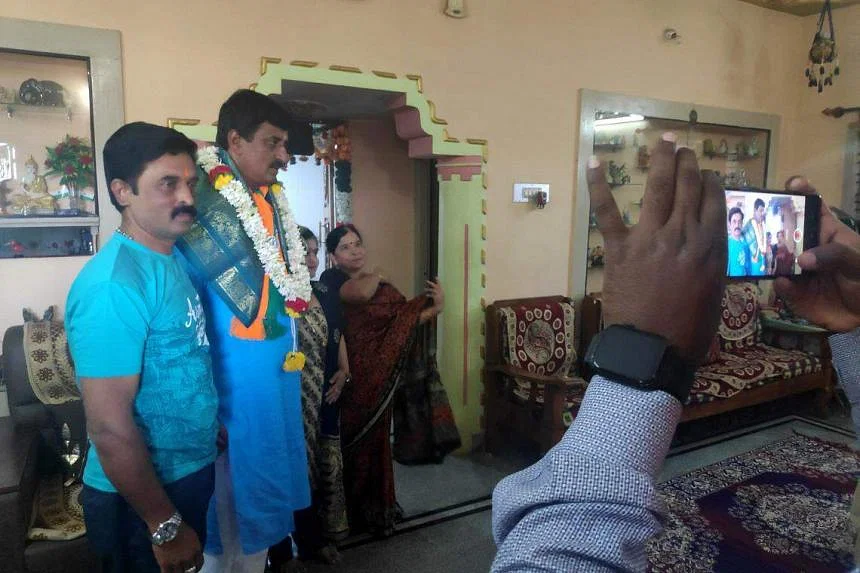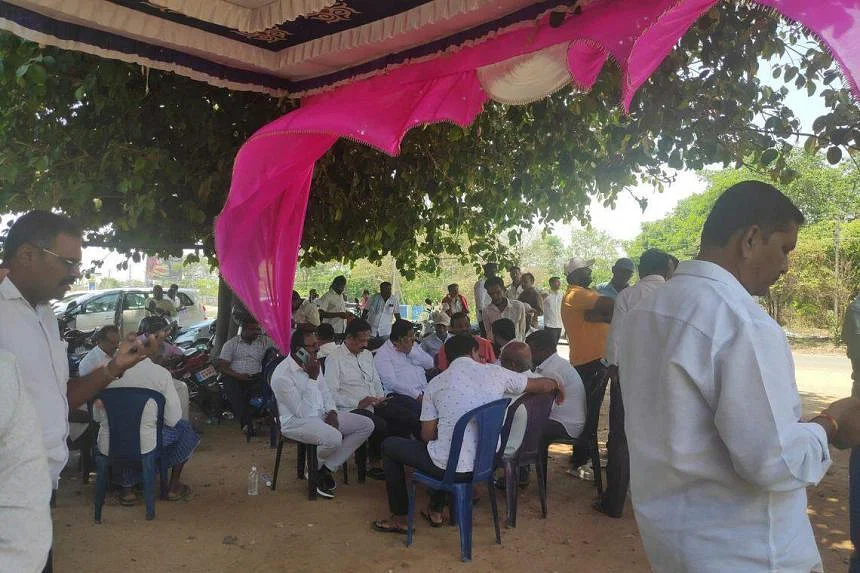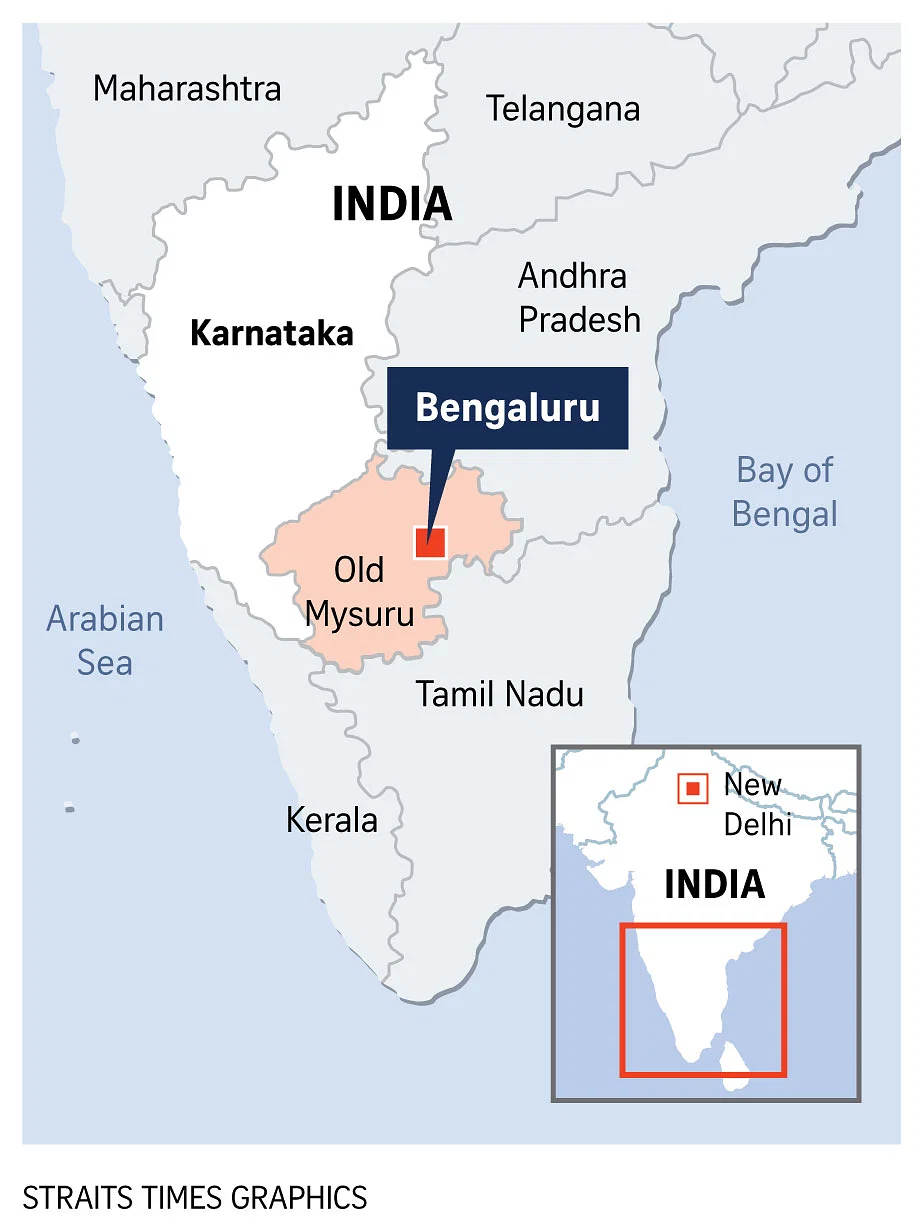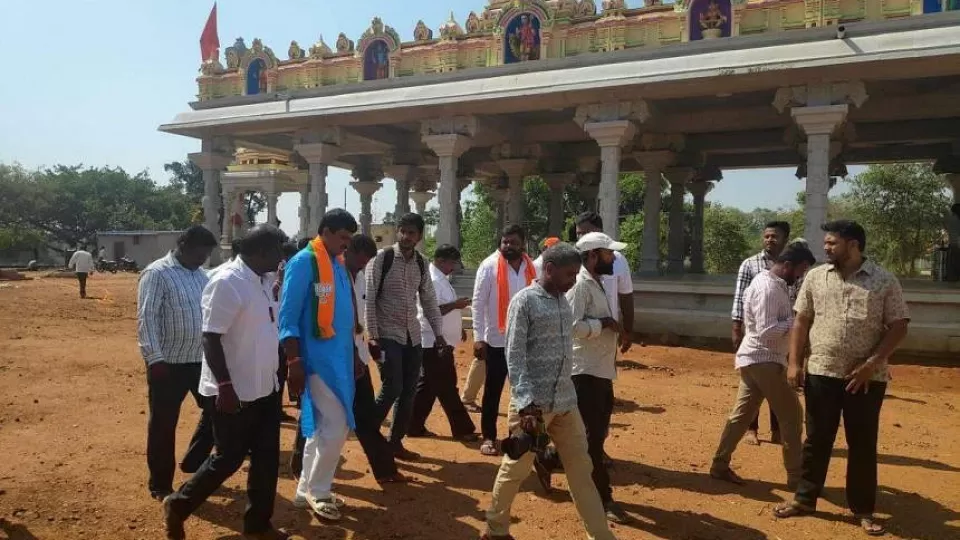April 20, 2023
CHANNAPATNA – India’s ruling Bharatiya Janata Party (BJP) is trying to make further inroads in Karnataka ahead of elections on May 10 by stirring up caste and religious sentiments in the only southern Indian state in its power.
The chief obstacle to the BJP sweeping the state has been the largely rural and agricultural belt of Old Mysuru, which also includes towns around the capital Bengaluru.
It is an unofficial region in Karnataka’s south that spans what was once the princely state of Mysore. With around 60 assembly constituencies, it makes up the largest chunk of the total 224-seat legislature.
While the BJP dominates in coastal and urban areas, its poor performance in the southern part of the state meant it has never been able to win a majority of seats. It has managed to form a government in Karnataka only through coalitions or by getting other legislators to defect to its party.
“The BJP has succeeded by consolidating Hindu votes against non-Hindus in the rest of the country and coastal areas of Karnataka. But in south Karnataka, caste politics trumps religious politics. Some caste groups are refusing to come under their fold,” said Professor Krishnegowda, a satirist and retired professor of Kannada at St Philomena’s College in Mysore.
Voters in Old Mysuru have traditionally supported the regional Janata Dal Secular (JDS) party or the Indian National Congress, as their leaders built relationships with the dominant Vokkaliga farming community, backward classes and Muslims who dominate the region.
The JDS’ founding family is Vokkaliga. A chief ministerial aspirant in the Congress, state party chief DK Shivakumar, is also a Vokkaliga.
The BJP, on the other hand, is seen as a party of Lingayats, a major sect that former Karnataka chief minister B.S. Yediyurappa won over in the central and northern parts of the state.
Without winning big in south Karnataka, the BJP may have to form a coalition government with JDS, which it has said it wants to avoid.
On April 13, about 60km from the capital Bengaluru, in Channapatna constituency – known for its wooden toys, raw silk and rice – BJP candidate and Karnataka Rural Development Minister C.P. Yogeshwara was on the penultimate day of his gruelling 50-day door-to-door election campaign, a first for his party here.
The former actor walked through a neighbourhood with folded hands and posed for photos in people’s living rooms.

Mr Yogeshwara (second from left) posing for photos with residents during a door-to-door election campaign in Channapatna. ST PHOTO: ROHINI MOHAN
In one home, when Mr Yogeshwara realised that the resident was head of the district government teachers’ union, he held his hand and said: “Fix your fate! It’s up to you – don’t leave it to the fellow you’ve never seen.”
Mr Yogeshwara was referring to his opponent and the current legislator of Channapatna, Mr H.D. Kumaraswamy, a former chief minister from JDS to whom he has lost twice before.
JDS won 24 assembly seats in the region in the previous 2018 state polls. BJP only won nine seats and 18 per cent of the votes here in 2018, although it was the single largest party with 104 seats and 36 per cent of the votes overall.
“Because the BJP is weak in the Old Mysore area, we have decided not to have adjustment politics any more and field senior candidates, to give the JDS and Congress tough competition,” Mr Yogeshwara told The Straits Times.
Unlike previous elections when the BJP fielded junior leaders in south Karnataka, the party is trying to overcome its caste disadvantage. They are doing so by fielding senior BJP ministers such as Karnataka Infrastructure Minister V. Somanna, a dominant Lingayat, in Varuna constituency against Congress’ former chief minister Siddaramaiah, who appeals to all other marginalised castes and religious groups, as well as the state’s Revenue Minister R. Ashoka, a Vokkaliga, in Kanakapura to fight Congress’ chief ministerial aspirant D.K. Shivakumar, another Vokkaliga heavyweight.
But the caste bond is strong. Two streets away from Mr Yogeshwara, dozens of supporters waited in the blazing April heat for Mr Kumaraswamy.
Even though Mr Kumaraswamy did not turn up and his wife, another legislator, came five hours late, cab driver Honnaiah Gowda, 37, said he would still vote for JDS, as it was “about my caste, my dignity”.

Supporters of the Janata Dal Secular, a regional party, wait for hours for their leader to arrive in Channapatna constituency, the party’s stronghold due to caste affiliations. ST PHOTO: ROHINI MOHAN
To corner some of that caste affinity, late in 2022, the state BJP unit got the party’s biggest vote-getter, Indian Prime Minister Narendra Modi, to inaugurate a 108ft statue of Vokkaliga chieftain Nadaprabhu Kempegowda, after whom the Bengaluru international airport is named.
In March, BJP leaders also invited Mr Modi to inaugurate a memorial in Mandya to two Vokkaliga chieftains, Uri Gowda and Nanje Gowda, who they claimed (based on a fictional Kannada play) were the “real heroes who killed Muslim king Tipu Sultan”, the 18th-century ruler of Mysuru, despite historical archives that establish that the British colonial army was responsible.
Radical Hindu fundamentalist youth groups have also become more active in south Karnataka in the past year, which Prof Krishnegowda said was a “sign of quick and dirty polarisation of Muslims and Hindus”.
Just after the election dates were announced, a Muslim cattle trader, Mr Idrees Pasha, was allegedly killed in Mandya by Puneeth Kerehalli, a Hindu fundamentalist vigilante claiming to protect cows, which some Hindus consider holy. He has since been arrested and charged with murder.
Mr K.R. Suresh, president of Hindu right-wing organisation Vishwa Hindu Parishad in Kanakapura, said: “We are proud of Puneeth Kerehalli, and you’ll see more pro-Hindu work like this from us.” He claims the group’s membership has doubled in the past year.
“We do not directly support any political party, but since the BJP’s values of Hindutva (Hindu nationalism) are most aligned with ours, their leaders may benefit the most from us being active,” he added.
Even if the BJP’s strategies fail in the state election, Mr Yogeshwara is sure they “will pay off in the long run” in the May 2024 national election as Hindu nationalist ideas seep in and the party “demonstrates its commitment to people it earlier ignored”.



